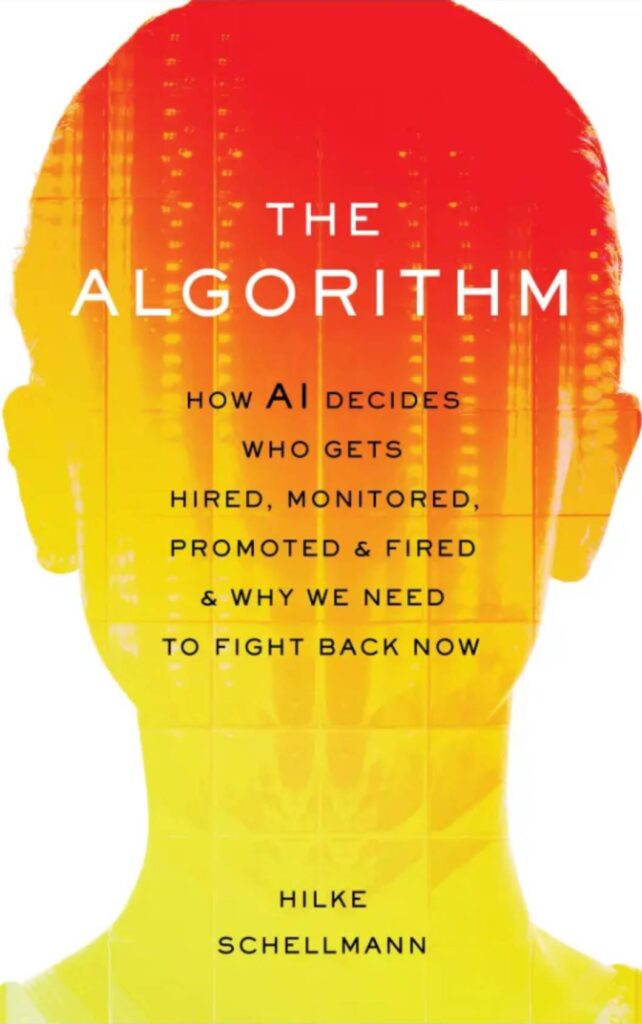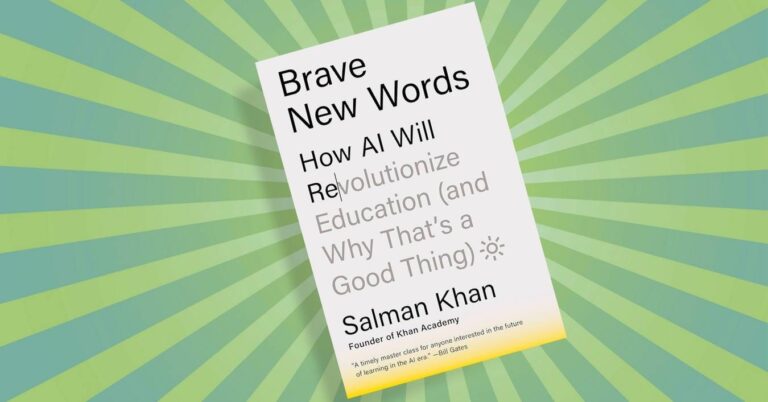
“The Algorithm” by Hilke Schellmann explores the pervasive influence of algorithms in our everyday lives, uncovering their roles in decision-making processes across various domains.
The book delves into the ethical, social, and practical implications of algorithmic systems, emphasizing the importance of transparency, accountability, and fairness.
Key Takeaways, Insights, and Views
- Algorithms in Daily Life
- Algorithms are deeply integrated into various aspects of our daily routines, from social media feeds to job recruitment processes.
- The book highlights the often unseen impact these systems have on personal and professional decisions.
- Transparency and Accountability
- The necessity for transparency in how algorithms operate and make decisions.
- Accountability mechanisms are crucial to ensure these systems do not perpetuate biases or cause harm.
- Bias and Fairness
- Algorithms can unintentionally perpetuate existing biases present in the data they are trained on.
- Ensuring fairness requires diligent oversight and regular auditing of algorithmic systems.
- Ethical Considerations
- Ethical frameworks for developing and deploying algorithms are essential to balance innovation with societal good.
- The book discusses various ethical dilemmas and potential solutions.
- Regulation and Policy
- The importance of regulatory frameworks to govern the use and impact of algorithms.
- Calls for policymakers to stay informed and proactive in addressing algorithmic challenges.
- Impact on Employment
- The transformative effect of algorithms on the job market, including automated hiring processes and workforce displacement.
- Strategies for mitigating negative impacts on employment.
- Algorithmic Literacy
- The need for improved public understanding of algorithms and their influence.
- Education initiatives to enhance algorithmic literacy among the general population.
Core Concepts
| Concept | Explanation | Importance |
|---|---|---|
| Transparency | Clear disclosure of how algorithms function and make decisions. | Vital for trust and to allow for scrutiny and correction of biases. |
| Accountability | Mechanisms to hold creators and users of algorithms responsible. | Ensures ethical standards are upheld and prevents misuse or harm. |
| Bias | Systematic errors introduced into algorithms based on prejudiced data. | Critical to address to prevent unfair treatment of individuals or groups. |
| Fairness | Ensuring equitable treatment by algorithms for all individuals. | Prevents discrimination and promotes justice in automated decisions. |
| Ethical Frameworks | Guidelines for the responsible creation and deployment of algorithms. | Balances technological advancement with moral and societal considerations. |
| Regulatory Frameworks | Laws and policies to oversee algorithmic use and impacts. | Provides a structured approach to managing the societal effects of algorithms. |
| Algorithmic Literacy | Public understanding of algorithmic processes and their implications. | Empowers individuals to make informed decisions and advocate for their rights. |
| Workforce Displacement | Job losses or changes due to automation by algorithms. | Essential to address for societal stability and to prepare for future job market transformations. |
Deeper Explanations of Important Topics
Transparency and Accountability in Algorithms
- Explanation: Transparency in algorithms involves making the decision-making processes and underlying data visible and understandable to stakeholders. Accountability refers to the establishment of systems and structures that ensure those who develop and deploy algorithms are responsible for their impacts.
- Importance: These concepts are crucial for building trust in algorithmic systems and ensuring they are used ethically and responsibly. Without transparency, it is difficult to identify and correct biases or errors, leading to potentially harmful outcomes. Accountability ensures that developers and users can be held responsible for the effects of their algorithms, promoting higher standards of practice and mitigating risks.
Bias and Fairness in Algorithmic Decision-Making
- Explanation: Bias in algorithms occurs when there are systematic errors that favor certain outcomes based on prejudiced data or flawed design. Fairness involves creating systems that provide equal and just treatment to all individuals, regardless of their background or characteristics.
- Importance: Addressing bias and ensuring fairness is essential for preventing discrimination and promoting equity. Biased algorithms can reinforce societal inequalities, leading to unjust outcomes in areas such as hiring, lending, and law enforcement. Ensuring fairness helps to promote social justice and trust in automated systems.
Actionable Insights
- Conduct Regular Algorithm Audits
- Regularly audit algorithms to identify and rectify biases.
- Implement a routine review process to ensure ongoing fairness and accuracy.
- Enhance Algorithmic Transparency
- Develop clear documentation and communication strategies to explain how algorithms function.
- Make algorithmic processes and data sources accessible to stakeholders.
- Implement Ethical Guidelines
- Establish and adhere to ethical frameworks when designing and deploying algorithms.
- Train teams on ethical considerations and the importance of responsible algorithmic development.
- Promote Algorithmic Literacy
- Create educational programs and resources to improve public understanding of algorithms.
- Encourage critical thinking about the impacts of algorithms on daily life.
- Advocate for Policy Development
- Engage with policymakers to develop robust regulatory frameworks for algorithms.
- Support initiatives that promote transparency, accountability, and fairness in algorithmic systems.
Quotes from "The Algorithm"
“Algorithms are the silent decision-makers of our age, influencing everything from our newsfeeds to our job prospects.”
“Transparency is not just a feature; it is a necessity for the ethical deployment of algorithms.”
“Unchecked biases in algorithms can perpetuate and even exacerbate societal inequalities.”
“Algorithmic accountability is the cornerstone of responsible AI development.”
“To navigate an algorithm-driven world, we must elevate our understanding and demand fairness and transparency.”
This summary of “The Algorithm” by Hilke Schellmann is part of our series of comprehensive summaries of the most important books in the field of AI. Our series aims to provide readers with key insights, actionable takeaways, and a deeper understanding of the transformative potential of AI.
To explore more summaries of influential AI books, visit this link.






